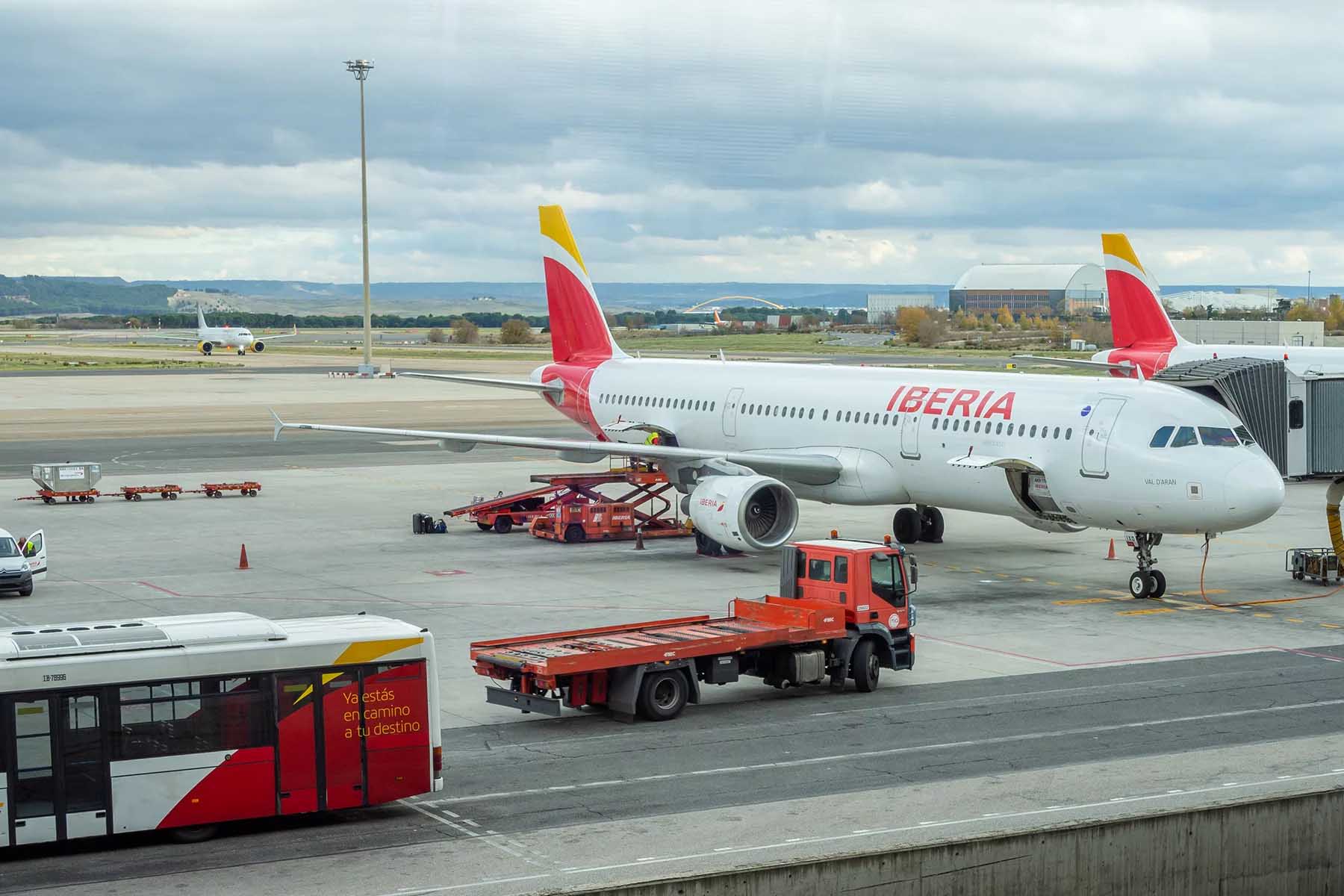If you’re moving to Spain, don’t let worries about removals distract you from dreaming of sunshine and siestas. Although moving your household to a new country might seem like a major undertaking, there are plenty of ways to get your items from A to B. Indeed, Spain has several airports, a long coastline with many ports, and an extensive road and rail network.
To give you an idea of what to expect, this article will detail your options for removals to Spain. It’ll also inform you on keeping costs down, avoiding damage, and receiving your belongings on time. It covers the following topics:
- Relocating to Spain from abroad
- Removals to Spain with air freight
- Relocating to Spain with sea freight
- Transporting your belongings to Spain via road and rail
- Moving to Spain with an international relocation company
- Relocating vehicles and pets to Spain
- Customs and importing goods into Spain
- Useful resources
BCN Life
Make your move to Spain seamless with BCN Life. This team of American relocation experts can help you start your dream life in Spain, with services including real estate purchases and rentals, assistance with visas, and advice on living in Barcelona. Get in touch with BCN Life for a stress-free move to Spain
Relocating to Spain from abroad
When moving to Spain, there’s a lot to consider. One of the first things on your moving checklist will be deciding how to move all your treasured belongings to your new home in Spain. In addition to the all-important timing of your move, you’ll also need to consider customs and whether any items require quarantining. You’ll also need to think about your budget. Cost is a big factor in moving to Spain because different removals options determine prices based on different criteria, such as weight or volume.

Another important question for your move to Spain is whether to hire an international relocation company or do it yourself. This largely depends on how much time you have and your available funds. International moving companies typically take care of any potential issue that may arise, which is ideal for time-strapped expats – but not for those with tight budgets. There are a number of online platforms to help you find the right removals option for you, including:
These platforms are often a good place to start your relocation journey, even if you decide you would prefer to go with a relocation company or move things yourself. They can give you a good idea of what’s out there in terms of your options and budget. However, you decide to move, read on to find out more about each method and what you should consider during the process.
Removals to Spain with air freight
Generally speaking, shipping your belongings by air is the quickest way of getting them from A to B. This is particularly true if your new home is located near an airport. As you might expect, Spain has a number of international airports that offer freight services. Some of the biggest include:
- Alicante-Elche Airport
- Barcelona-El Prat Airport
- Bilbao Airport
- Madrid-Barajas Airport
- Málaga-Costa del Sol Airport
- Palma de Mallorca Airport
- Tenerife South Airport
In terms of both passengers and air freight, Madrid Barajas airport is the busiest. However, there are a number of airports located across both the Spanish mainland and islands that should be able to handle your freight.
Who should use air freight?
Typically, air freight is one of the quickest shipping options, especially if you’re near an airport on either side. However, all that speed comes at a cost, which is something to consider if you’re on a budget. That said, if you need to move at short notice or if you have a few small, light objects to send, it can work out as the best option. You may also want to bear in mind that air freight is the most carbon-intensive method of removals to Spain. This means it’s best avoided if you’re looking to live sustainably in Spain.

How air freight works
As with all methods for relocation to Spain, your first step will be collecting quotes from various removals companies. You can get an estimate of how much this costs online by checking the international shipping comparison sites mentioned above. However, in order to get an accurate quote, you’ll need to know how much your items weigh and their volume.
Should you opt for an international relocation company, they will typically carry out a survey of your house either in-person or by video call for a more accurate quote. Don’t forget to let them know whether you want to include additional services like packing and unpacking. Once you have a quote, you then need to ensure you have the correct paperwork and documents. The company will likely assist you with this, especially if you have a door-to-door service that will transport your goods through customs.
On arrival, you can arrange a date for delivery, and you should receive online tracking information to keep an eye on their progress. Some removals companies will also unpack your items once they arrive in Spain. This may be something to consider, depending on your circumstances.
Air freight timings
As always with international relocations, it’s a good idea to give yourself a few weeks of lead time when sending your belongings to Spain. However, air freight can operate with shorter deadlines than shipping by sea, for example. This can make it a good option if you’ve left things a little tight timewise.
Wherever you’re moving from in the world, it’s reasonable to expect your belongings to arrive within a week. You can also pay to take extra baggage on your flight for items you need immediately.
Air freight costs
Generally speaking, air freight costs several times the amount you’d pay for sea freight. Depending on the season and demand, it can cost between $2.50–$8.00 per kilogram. As you have to take weight into account, it’s rarely the most cost-effective method.

Many air freight companies also charge a minimum rate of around $150, so bear this in mind when booking. In addition, some companies might not ship valuable or dangerous items, so make sure you read the terms and conditions beforehand to avoid disappointment.
Packing options for air freight
You can usually pack your own items for air freight, but many relocation companies also offer professional packing services at an additional cost. While air freight is not environmentally friendly, if you’re packing your own belongings, you can save some waste by placing them in reusable containers such as suitcases or plastic boxes.
If you would rather let the professionals handle packing, all is not lost, as many companies offer sustainable packing alternatives, such as biodegradable plastics. Contact your removal company to find out about their eco-friendly packing options.
Finding an air freight company
How you find a company to ship your belongings via air freight will largely depend on your circumstances. For example, if you’re using an international relocation company, they will arrange this part of your move for you. However, if you’re sorting out the move yourself, you may need to find a logistics service that can ship your belongings by air.
However, keep in mind that online estimates don’t usually include extra costs such as insurance, handling fees, or minimum shipment charges. You may need to contact the company directly.
Another way is to contact your airline, as many offer relocation services. For example, Spanish airline Iberia offers a relocation service through its partners.
Relocating to Spain with sea freight
Spain is big in shipping – the country handles the third-largest volume of seaborne freight in Europe. Its five main ports, Valencia, Bahía de Algeciras, Barcelona, Las Palmas, and Bilbao, account for nearly 90% of the shipping containers entering and leaving Spain. This means that if you’re moving your things via the ocean, they’ll probably pass through one of these ports.
Who should use sea freight?
Sea freight is an excellent option if time is on your side. It often works out cheaper when compared to other options. However, it’s not the quickest and, therefore, is suitable for items you don’t need urgently. While it’s not carbon-free, it’s certainly more environmentally friendly than shipping by air. Typically, a container ship pollutes around 20–30 times less than an airplane.
How cargo works
First, you need to source quotes from sea freight companies. Just as with air freight, the chosen company might then come to your house to inspect your cargo. They will likely advise you whether to use a full container load (FCL), less than a container load (LCL), or groupage:
- 20-foot container – usually fits the contents of a house with two or three bedrooms
- 40-foot container – ideal for a four-bedroom or five-bedroom house and a car
- Groupage – if you don’t have enough belongings for a full container, you can pay for part of a container instead. This means your items will be grouped with those of other customers.
If you choose to use a door-to-door removals service, they will typically pack your belongings, transport them to the port, handle customs, and bring them to your new home.
Sea freight shipping transit times
Shipping freight is much slower than sending items by air. This is especially true if your country of origin is a long way from Spain. Here are some estimated freight times based on major shipping companies’ transit times.
- UK: 2–12 days
- Australia: 30–56 days
- USA: 11–37 days
- Venezuela: 27–30 days
- Japan: 29–35 days

As you can see, shipping times vary greatly even from the same destination. This depends partly on whether you ship a full container or less than a container load and the demand, weather conditions, and other risks.
Maritime freight costs
Shipping to Spain by container is much cheaper than removal by air freight. The cost of shipping freight usually depends on the size of container you need. Sea freight is generally charged by volume rather than weight; the price typically works out at around $0.50 per kilogram. Groupage is the cheapest option, but it can take longer, as you need to wait until the container is full.
Packing for sea freight
Some shipping companies only accept your goods if they pack them themselves, so make sure you check terms and conditions before shipping. Compared to air freight, packing options are more limited. This is because your items are going on a long journey and need to withstand shocks and moisture. Despite the limitations, many companies are becoming more conscious of being eco-friendly and offer lightweight packing options.
Finding a sea freight company
As with air freight, your options for sorting our international shipping to Spain will largely depend on your circumstances. If you’re using a global relocation service, they will sort out this part of your move for you. However, if you’re sorting it out yourself, you’ll need to compare quotes from various shipping providers to find the right option for you.
Transporting your belongings to Spain via road and rail
If you’re moving from another European country, sending your belongings by road or rail can be a hassle-free way of getting them to your new home quickly and securely. Both are more environmentally friendly than air freight, and rail transport is the least carbon-intensive method apart from sea freight. There are several options:
- Drive your belongings to Spain: If you have a small amount to move, and you’re moving from a nearby country, you can save money by driving your own vehicle or hired van.
- Hiring a company: Although more expensive than driving yourself, there are many removals companies that carry out moves by van. Again, this method works best if you already live in Europe.
- Take your belongings on a train: While it’s not the most convenient method of relocating, if you only have a few suitcases and are traveling a short distance, you can move house for the price of a train ticket. After all, Spain has an excellent high-speed train network.
- Train freight: As well as air and sea, it is possible to move your belongings in a container by rail, even from another continent. Speak to a courier service to find out more about this option.
Moving to Spain with an international relocation company
Employing a removal company to manage your move to Spain will often cost more than arranging the individual parts yourself. However, it’ll give you peace of mind that your belongings will make it safely and with the required paperwork (such as inventory lists and customs forms). This is particularly true if the journey uses multiple forms of transport.
Relocation companies usually offer complete door-to-door services, though some also offer tailored packages. For more information on what each company offer, it’s best to speak to them directly to discuss your move. Global relocation companies operating in Spain include:
- BCN Life – for assistance with finding a home, visa applications, and property management
- Crown Relocations
- Eres Relocations
- Relocation2Madrid
- Sirelo
As there is plenty of choice when it comes to international relocations services, you may want to compare your options. Helpfully, there are comparison websites to help you out. These include:
Whichever company you use for your move to Spain, it’s a good idea to start the process as early as possible. Most companies suggest at least 8–12 weeks before your move, but it is often possible to book a moving company up to six months in advance.
How to choose a relocation company
Finding the right international shipping provider can give you peace of mind while dealing with the other details of your move. As well as those listed above, our directory has plenty of moving companies to get you started.
First, check if your company is reputable by seeing if they are registered with a regulatory body. For example, some are part of the International Federation of Freight Forwarders Associations or the International Air Transport Association. In contrast, others will be registered with national bodies in their country of operation.

Once you’ve narrowed down the reputable firms, you’ll need to think about how to set them apart from each other. This isn’t always about cost; often, you can find out more from personal recommendations from people who’ve moved to Spain or online testimonials.
DIY versus using a relocation company
Nothing is stopping you from organizing the logistics yourself. Be aware, though, that carrying out a move isn’t for everyone. There’s a reason good removal professionals are in high demand.
If you’re thinking of going the DIY route, ask yourself the following questions before getting quotes:
- Are you likely to save a significant amount of money by arranging things yourself?
- How much time do you have to spend on tasks such as packing and arranging insurance?
- How much of a hurry are you to get your belongings at the other side?
- Do you have a backup plan in case things go wrong?
For smaller moves, you could search an online platform such as TaskRabbit to find someone to help you with jobs such as moving boxes and putting furniture together.
Relocating vehicles and pets to Spain
It’s also possible to bring your vehicles and pets to Spain. However, pets moving to Spain need to be microchipped and vaccinated for rabies and other diseases. Extra paperwork is required for pets from the US or Canada, and those from countries with a high incidence of rabies must undergo two tests. Pets can travel by plane either in a container (which must be approved by the International Air Transport Association) or in the cabin. If you are moving from another EU country, you must have an EU pet passport for your animal.

When moving a car to Spain from outside the EU, you need to have:
- Proof of vehicle ownership
- A customs declaration
- Driver’s license
- An insurance policy
- Vehicle technical specifications
If you’re moving from another EU country, you can take your car into Spain VAT-free as long as you’ve owned it for at least six months. However, if you want to import a new vehicle, you’ll need to pay VAT at 21%, while non-EU citizens will also need to pay an additional 10% import tax. Imported cars have to pass a Vehicle Inspection Test (Inspección Técnica de Vehículos – ITV). You can find ITV centers all over Spain.
Non-EU vehicles must be registered immediately, while those imported from EU countries can be driven for six months before registering in Spain. Read more on getting a Spanish driving license and Spanish driving rules.
Regardless of where you’re moving from, you’ll need to pay Impuesto Especial sobre Determinados Medios de Transporte (registration tax). This tax is based on the value and emissions of the vehicle, and you can access a form here.
Customs and importing goods into Spain
The Spanish tax authority (Agencia Tributaria) handles import regulations, so check their website for details on what you may and may not bring into Spain. Otherwise, the same rules apply as in the rest of the EU; you may not bring meat or dairy products from outside the EU with you, and some goods have restrictions.
When moving to Spain, you do not need to pay duty charges on your personal goods, as long as you’ve owned them for a minimum of three months (or six if you’re a non-EU resident). You’ll also need to have lived outside of Spain for at least one year, and you won’t be able to sell the items for one year after removal to Spain. To gain your exemption, you need:
- A passport
- Residence card (tarjeta de residencia)
- Registration at the Spanish municipality where you will live
- An inventory, in Spanish, of your personal items and their value. If you are importing a car, don’t forget to include it in the inventory.
Useful resources
- Agencia Tributaria – the Spanish tax authority provides details on customs procedures and related legislation.
- Ministerio de Asuntos Exteriores, Unión Europea y Cooperación – the Spanish Ministry of Foreign Affairs offers information on entering and residing in Spain.




